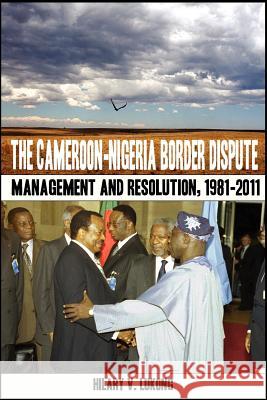The Cameroon-Nigeria Border Dispute. Management and Resolution, 1981-2011 » książka
The Cameroon-Nigeria Border Dispute. Management and Resolution, 1981-2011
ISBN-13: 9789956717590 / Angielski / Miękka / 2011 / 238 str.
The Cameroon-Nigeria Border Dispute. Management and Resolution, 1981-2011
ISBN-13: 9789956717590 / Angielski / Miękka / 2011 / 238 str.
(netto: 205,48 VAT: 5%)
Najniższa cena z 30 dni: 216,94
ok. 16-18 dni roboczych
Bez gwarancji dostawy przed świętami
Darmowa dostawa!
At independence, Cameroon and Nigeria adhered to the OAU principle of uti possedetis juris by inheriting the colonial administrative borders whose delineation in some parts was either imperfect or not demarcated or both. The two countries tried to correct these anomalies. But such efforts were later thwarted by incessant geostrategic reckoning, dilatory, and diversionary tactics in the seventies and eighties that persisted and resurfaced in the nineties with a more determined posture. On two occasions, the border conflict almost boiled over to a full-scale war. First, in May 1981 when there was the exchange of fire between Cameroonian and Nigerian coast guards and second, in February 1994 when Nigeria marched her troops into Cameroons Bakassi Peninsula. Elsewhere in Africa, border incidents like these have often degenerated into war. But Cameroon and Nigeria together with the international community managed these protracted incidents from escalating into war. This book examines the part played by the disputing parties, Cameroon and Nigeria; the mediation, conciliatory and adjudicatory role of third parties; regional and international organisations, in the process of the resolution of the border dispute from 1981-2011. The study situates the nature and dynamics of the dispute historically, and comprehensively explores in detail its causes, settlement and resolution.











